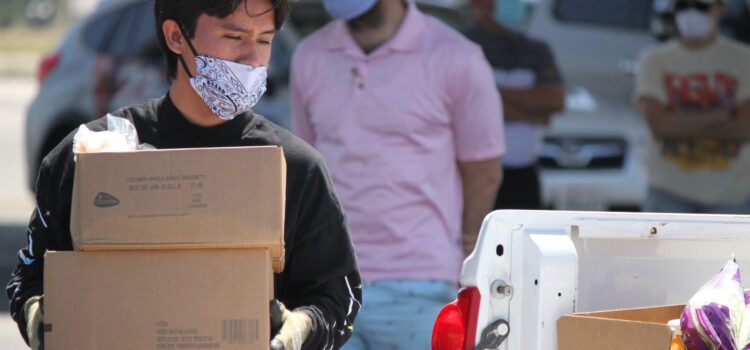
After going through a pandemic for a year, food insecurity remains a big concern in Kern, as people continue to struggle more than ever with food needs.
There has been an uptick in need due to people losing their jobs during the pandemic, according James Burger, the Outreach and Advocacy Coordinator for Community Action Partnership of Kern. In 2020, CAPK distributed 33 million pounds of food — a 20 million pound increase from 2018 and a 13 million pound increase from 2019 food distributions, according to Burger.
“We are here to help people stay stable during this pandemic and make sure they have the resources they need to stay home, stay safe, and keep their economic footing,” Burger said.
CAPK is Kern County’s official antipoverty program. Its mission is to provide support to families who are working their way through poverty. They have a variety of services, such as Head Start, energy assistance, WIC, and childcare programs, and a foodbanks.
CAPK’s foodbank works as the central hub for emergency distribution in Kern. They have more than 150 partners to help distribute goods.
March is Nutrition Awareness Month, the purpose of its campaign is to bring awareness to making informed food choices and developing good eating and physical habits.
However, during a pandemic, this can be particularly hard for certain people and their families who are struggling simply to put food on the table. Nutrition is not always a primary consideration during hardship, but CAPK is trying to meet the health needs of the community.
“Our efforts are designed to get those long-term protein foods, and we also work really hard with local growers for fresh produce,” Burger said.
In 2018, Food Research and Action Center named Bakersfield the most hungry city in the nation. Bakersfield has always remained in the top 10.
According to FRAC’s report, Bakersfield ranked first under “The Metropolitan Statistical Area With the Worst Food Hardship Rates in 2016–2017.” The food hardship rate was 23.2 percent.
Often, there can be a struggle between nutrition and the need for food. CAPK emphasizes healthy living by doing its best to provide healthy and staple foods. They also try to supplement healthy recipes alongside their packages.
CAPK also had to face health and safety issues while trying to still be a helpful resource to the community due to COVID-19 concerns. Early in the pandemic, they partnered with Kern High School District schools for distribution. They also expanded multiple programs, like delivering 70 pounds of food to local seniors in need who have health risks.
CAPK’s Food Bank office business hours are Monday through Friday from 8 a.m. to 5 p.m. The warehouse accepts food donations and drop-offs between 8 a.m. and 3:30 p.m.